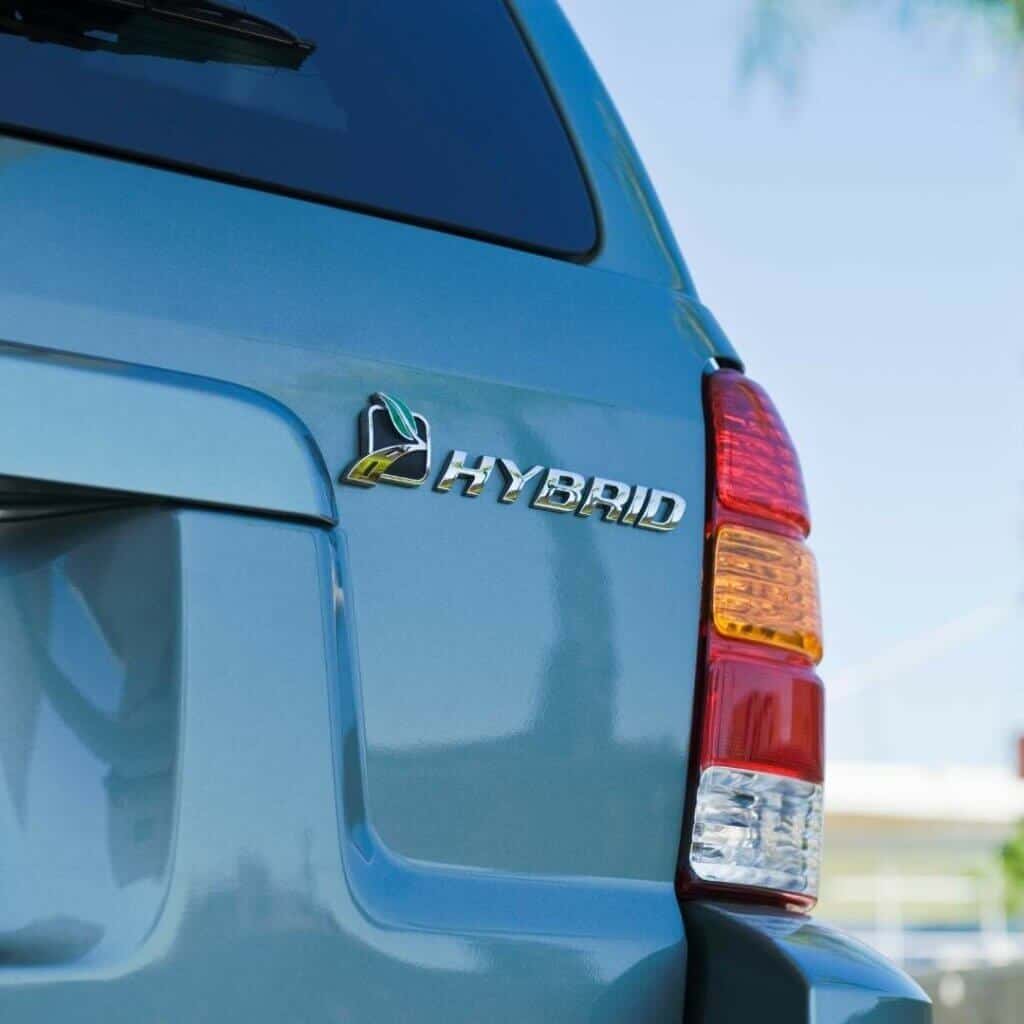Are you familiar with the Nissan CVT transmission problems?
Since its time as Datsun, Nissan has advanced significantly. The mid-size sedan Altima is now housed here. The Rogue SUV has a lot of cargo space and is quiet and comfy.
The legendary GT-R is the top model in the list, earning its reputation as a supercar killer with its moniker, “Godzilla,” and a powerful 565-hp twin-turbocharged V-6. On the opposite end of the scale is the Versa, one of the US’s most reasonably priced new cars.
Understanding CVT Transmission
What is common to all these vehicles is the CVT. CVT (Continuous Variable Transmission) is made to alternate gear ratios while driving the car. Other transmissions only offer a fixed number of gears and have difficult transitions between them. [1]
Regardless of the speed at which they are driven, Nissan’s CVT gearboxes are intended to give drivers a higher degree of flexibility. One benefit is a smoother driving experience.
Vehicles with this technology are more fuel-efficient and easier to drive uphill, which makes driving enjoyable. Their original costs and ongoing maintenance, however, are frequently more expensive.
Nissan CVTs employ a pulley mechanism to alter gear ratios, which sets them apart from conventional gearboxes. The technology increases fuel efficiency while being flexible and offering quick shifting.
Nissan CVT Transmission problems

However, due to persistent safety issues, like transmission fluid leaks, there have been numerous class-action lawsuits and consumer complaints against Nissan CVT transmissions.
Nissan’s recent wave of component-related lawsuits has overshadowed the quality of its automobiles, and one of the accusations involves the CVT. Yet, given all that Nissan has to offer, it is clear why many of its customers still enjoy their cars and are loyal to the manufacturer.
CVT transmission problems have reportedly been found in the following Nissan models.
- 2018-2019 Nissan Versa Note
- 2015-2017 Nissan Quest
- 2015 – 2021 Nissan Murano
- 2016 – 2021 Nissan Maxima
- 2017 – 2021 Nissan Altima
- 2018 – 2019 Nissan Sentra
- 2018 – 2021 Nissan Pathfinder
- 2015 – 2017 Nissan Rogue
This is a severe issue because there are numerous ongoing class-action lawsuits against the firm as a result of these defective transmissions.
Compared to conventional gearboxes, continuously variable transmissions are allegedly more difficult to fix, don’t last as long, and are more prone to overheating. As a result, Nissan transmissions frequently experience problems.
Common Nissan CVT Transmission Problems

- Control Module Issues
TCM (Transmission Control Module) problems are among the Nissan CVT’s most prevalent issues. This is because the CVT transmission’s shift points and pressure levels are under the TCM’s control.
The module compiles all the data from the car’s sensors and decides how the transmission should respond. As a result, you might notice abrupt changes in the behavior of your CVT transmission if the transmission control module malfunctions.
For example, there could be a delay in engagement and excessive gearbox slippage. When these symptoms appear abruptly, and without any past issues, you must figure out if your transmission control module is to blame.
The CVT will progressively sustain structural and mechanical degradation, but electronic problems typically manifest right away. [2]
Therefore, follow these easy procedures carefully, one at a time to carry out the Nissan CVT transmission module reset :
- Put the shifter in “Park” and turn off the air conditioning in your vehicle.
- Switch off your car’s ignition and wait for 5 to 10 seconds.
- Start the engine, then let it idle for a while.
- Wait for 30 to 40 seconds after turning off the ignition.
- To reset the gearbox control module in your car, repeat these instructions two or three times.
You may need to take your car to the closest auto repair shop for a complete diagnosis if the TCM is still not working properly after this procedure.
- Transmission Fluid Issues
The most common cause of CVT transmission failure is old, worn-out fluid. Therefore, most of the CVT issues and symptoms described here are brought on by low CVT transmission fluid levels, worn-out CVT transmission fluid, or using incorrect CVT transmission fluid.
A healthy and proper volume of transmission fluid prevents mechanical harm to the transmission by simultaneously lubricating and cooling all moving parts. Ensure that the fluid in your Nissan CVT transmission is changed at the manufacturer’s recommended intervals and that your CVT transmission is periodically checked for leaks.
Since it has demonstrated great promise in maintaining the long-term health of your CVT, many owners choose to reduce the time between transmission fluid replacements. Never use automatic transmission fluid (ATF) if your transmission is a CVT.
Continuously variable transmission fluid differs from the regular ATF fluid used in automatic transmissions [3]. Using the incorrect transmission fluid could permanently harm your car.
- Overheating
Nissan CVTs are notorious for overheating, especially while going up a steep incline or for an extended period at highway speeds. Consequently, the car frequently enters a fail-safe or “limp” mode when the transmission overheats, which causes a lack of power.
Undoubtedly, this situation might endanger the people inside the vehicle. Unfortunately, Nissan engineers underestimated how much heat the transmission’s belt and pulley system would produce, and the cooling system was unable to keep up.
Nissan published a Technical Service Bulletin (TSB) advising the installation of an external gearbox cooler to address the overheating issue. In addition, dealership technicians frequently use a scan tool to examine the CVT fluid temperature “counts” recorded by the TCM to identify the overheating problem.
Ensuring you get your CVT fluid replaced every 30,000 to 50,000 miles is the simplest approach to avoid overheating. The frequency of fluid changes for CVT transmissions is double that of a standard automatic transmission. One-speeds fail sooner when routine maintenance is skipped.
- Trouble with the Clutch
On a certain forum, a complaint was made that the clutch of the 2010 Rogue FWD slipped. Furthermore, the owner claimed that the car’s engine occasionally seemed to “rev up” excessively.
It typically happened after running at highway speed for a prolonged period, slowing down to turn, and then picking up speed again. The clutch that accompanies Nissan CVTs sits between the engine and the transmission.
The clutch should gradually engage the engine and transmission as you depress the gas pedal, resulting in a smooth takeoff. The CVT clutch may be at fault if you have issues like jerky starting, lurching forward, and delayed engagement. In some circumstances, simply reprogramming the clutch following a transmission fluid change can solve the problem.
Nissan CVT Transmission Failure Symptoms
The following are the common signs of CVT transmission failure:
- Oil leakage
You might notice reddish oil leak marks on the ground when you pull your Nissan out of your parking spot in the morning. This is a typical sign of CVT failure. A CVT can leak from about 20 exterior seals, some of which are very easy to maintain and replace. However, other fixes call for more involved procedures, according to transmission experts.
- Car vibrations
Do you ever feel any vibrations or a shaking sensation when driving fast? Insufficient engine tune or a fault with the car’s transmission system could be the causes of this. So, send your vehicle to a qualified mechanic and have the transmission system checked if you experience vibrations or shaking while driving.
- Gear engagement delays
When the gear changer is in reverse or drive, there is a noticeable delay before the vehicle’s gearbox shifts into gear. This is a classic sign that the CVT transmission is failing. A defective clutch pack with a busted internal transmission seal, a loose belt, and insufficient transmission fluid can delay gear engagement.
- Transmission slip
Transmission slip happens when your Nissan car’s engine is running hard but not sending all of its power to the wheels. Transmission slips can happen for several causes, so it’s best to have your car serviced by a professional before things worsen.
It’s appropriate to conduct a diagnosis if you suspect that your CVT transmission is sliding. For example, the transmission might be experiencing severe structural problems or fluid concerns if slipping excessively.
Lack of lubrication may result from insufficient transmission fluid, which is necessary for the continuous adjustment of the CVT pulleys, belts, and chains. If the transmission fluid is worn out, it could result in slipping. Even though some CVT transmission sliding is typical, you will undoubtedly notice it when it interferes with your everyday driving experience.
- Burning smell
If you detect a burning smell from your car, your gearbox may be overheating. A burning odor could be produced by transmission fluid leaking into your car’s exhaust system. Be sure to see an expert as soon as possible to have the transmission fluid leak investigated and fixed.
Has Nissan fixed their CVT Transmission Problems?
Although it had been aware of these transmission issues since 2009, in one class-action complaint, Nissan was accused of concealing this information to avoid paying for its errors. Nissan began offering an extended warranty for cars with CVT gearboxes in 2009. [4]
The Nissan Powertrain Warranty covers the transmission and is valid for 60,000 miles or five years, whichever comes first. In addition, 10 years or 120,000 miles are now included in the new extended warranty.
Nissan additionally provided a New Vehicle Limited Warranty as part of the settlement for previous Xtronic CVT class actions. From 60,000 miles or 60 months, this guarantee was extended to 84,000 miles or 84 months.
Nissan has settled several complaints involving its CVT transmission. Nissan CVT class action lawsuits involving the following models have already been settled:
- 2014–2018 Rogue
- 2015–2018 Nissan
- 2015–2018 Nissan Pathfinder
- 2013–2017 Infiniti QX60
- 2014–2017 Nissan Sentra
- 2013–2016 Nissan Versa
- 2013–2017 Nissan Juke
Many clients in these settlements got warranty extensions and money back for repairs they had to pay for out of pocket. Unfortunately, Nissan continued to use these defective CVT transmissions in later vehicles despite these agreements and payments.
Read Also: Toyota CVT transmission problems
Fixing Nissan CVT Transmission Problems
Nissan CVT owners covered by warranty shouldn’t be expected to pay out of pocket for a new transmission. However, even if your warranty has run out, you still have a few choices.
- Examine whether a repair business can fix it.
- Purchase a new transmission and have a mechanic install it.
- Replace it with a high-quality used Nissan transmission to save money.
Although a Nissan CVT transmission can be fixed or rebuilt, doing so may not be worthwhile if the problem appears with the car’s transmission cooler. A Nissan CVT transmission replacement normally costs between $1,500 and $4,000, depending on the year, make, and model of your car and the kind of CVT you have.
Read Also: Nissan X-trail Hybrid Problems
Conclusion
Nissan CVT drivers have reported that their transmissions often jerk, stall, shiver, hesitate, or even fail prematurely. Some drivers claim that an unexpected engine power surge occurs after these accidents.
In addition, many owners have reported that these CVT problems start to happen as they try to accelerate. These types of car flaws can be risky because they could come as a surprise to the driver and make them lose control.
Transmission sliding, hose leaks and failures, CVT transmission error messages, and a loss of power are thought to be the root causes of this phenomenon.
According to automotive experts, CVT faults must be fixed quickly to prevent total transmission failure and serious complications down the road. The CVT in your automobile may have a few early warning signs that you should be aware of because it operates continually.
Read Next: Toyota Venza Problems





